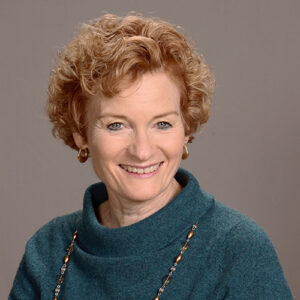Commentary: 5 Lessons From an Indiana District That Worked With an Outside Partner to Turn Around Its Troubled Schools

When the federal Every Student Succeeds Act was enacted, greater responsibility was placed on districts to lead the charge in improving our nation’s most troubled schools. As a result, many educators face the challenge of turning their schools around. They have to look hard at their districts’ shortcomings and find ways to bring systemwide change — and often, districts cannot do it alone.
When a district has the opportunity to see the challenges through the lens of outside experts, its leaders can integrate fresh thinking, challenge conventional approaches, and help create new, sustainable policies that lead to better educational outcomes.
The Evansville Vanderburgh School Corp. had been consistently graded at or near the bottom of Indiana’s accountability system since it was introduced in 2005, and by 2012, several of the district’s schools were in line for state intervention. The new superintendent — a longtime district educator with deep roots in the community — sought a partner who would work alongside him, his team, and the city’s schools to incorporate their vision with national best practices while respecting the local context.
Together, the district and Mass Insight, a nonprofit working with school systems across the country, have developed a partnership that has played an integral role in the district’s improvement. Evansville has climbed up the state accountability system by nearly four letter grades over the past eight years and now ranks among the highest performers in the state among similar districts.
Here are a few key lessons from that engagement, which continues to this day:
Philosophical alignment is essential. Before agreeing to the engagement, each party chose and vetted the other carefully. One important element was ensuring that both embraced the same core beliefs about openness, transparency, and a willingness to have hard conversations to bring about long-term change. Without a foundation of trust and a buy-in for openness at the top of a district, successful engagement is not possible.
Pick a partner, not a contractor. There’s a big difference between buying a service and creating an engagement with ongoing give-and-take. The district wanted a custom-built approach that would honor its existing strengths, not a cookie-cutter “solution.” The engagement started with a comprehensive audit of central office practices, which led to frank discussion and ultimately a focus on improving talent in the classroom — hiring, training, and coaching. After a thorough assessment, the partnership took the crucial first step of the turnaround: setting up a Transformation Zone with five of the district’s most underperforming schools that became an incubator for best practices in hiring and academic support for students. Strong partners provide an outside set of eyes and the skill sets needed to identify the root causes of poor performance, as well as the key strengths in a given school and systems that can be built upon as solutions are developed and implemented.
A good partnership helps school districts build sustainable capacity. Too often, when a vendor leaves, progress stops. The district couldn’t afford to spend money year after year for extra capacity; it needed assistance in building as much meaningful new capacity as possible. A pillar of the district’s strategic plan is ensuring that each teacher has individualized professional development in order to engage students in developing 21st century skills and reaching the rigorous demands of state standards. Rather than hire a third-party vendor to coach teachers, the partnership includes training for leaders at every level to act as coaches. This ensures that each teacher receives high-quality coaching. The district will have the embedded capacity to continuously and sustainably improve into the future.
Schools shouldn’t do it alone. Districts need to adapt, too. A good engagement recognizes the value of change, both on the front lines in the classroom and within the broader organization. Simply put, if districts truly believe that they have a role to play in supporting schools, they must have an improvement mindset about themselves, too. When the district saw how the five Transformation Zone schools were supported by a zone leader and specialized team in order to meet their needs and streamline services, the districtwide organizational structure was changed as well. All schools in the district are now clustered, with a principal supervisor at the head of each. Schools benefit from more tailored support, and the district has a better sense of the needs of its schools.
A successful partnership improves over time. Continuing the partnership enables the district and the partner to challenge each other’s thinking, to continue to surface and address hard questions, and to co-create and enact the ongoing improvement efforts in a coherent continuum. Each next step builds on the last, so practitioners don’t feel victimized by flavor-of-the-month reforms that make little sense in combination.
Districtwide transformation can happen — not overnight, not easily, but through careful assessment and a commitment to building talent and sustainable change. Our experience is that this journey is aided by a partner that shares those commitments.
David Smith is superintendent of the Evansville Vanderburgh School Corp. in Indiana. Susan F. Lusi is president and CEO of Mass Insight Education & Research, a Boston-based consultancy. Rob Jentsch is Mass Insight’s engagement director in Evansville.
Get stories like these delivered straight to your inbox. Sign up for The 74 Newsletter

;)
